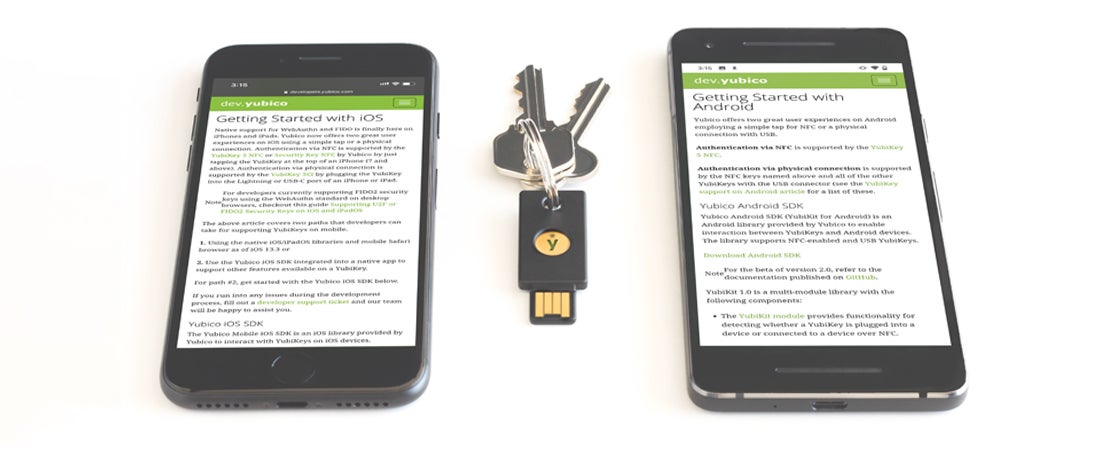Yubico is committed to enabling YubiKey integrations for all of our technology partners and enterprise customers with the least amount of friction and time-to-market as possible. With this goal in mind, we are very excited to announce the public general availability of our Android and iOS SDKs that went into public beta in December last year.
We have seen our enterprise customers and technology partners go on a journey where they start by adding YubiKey support on one platform, like desktop browsers, and then later they add support to other platforms, like Android and iOS. There are many reasons for this, but compliance, customer demands, and platform consistency are a few.
Yubico’s next-gen mobile SDKs facilitate the journey to adopting strong hardware-based authentication across all platforms. The SDKs offer a more modern architecture, providing a streamlined experience for services looking to deliver a consistent user experience across all devices and operating systems, as well as developers looking for a consistent integration experience when coding on both platforms.
Android SDK 2.0 enhancements for developers:
- Consistency in naming conventions makes it easy for developers building on these platforms to navigate from one device to another.
- Improved error handling enables developers to fail fast while integrating with the SDK and understand errors more intuitively.
- Better handling of threads and locks for YubiKey connections improves app performance.
- The Android OTP module now has support for programming NDEF as well as updating, deleting, and checking status of slots. Similarly, the Android PIV module now has support for ECDH (elliptic curve Diffie-Hellman) and better key import options (support for PKCS#8).
iOS SDK 4.0 enhancements for developers:
- Consistency in naming conventions makes it easy for developers building on these platforms to navigate from one device to another.
- Several structural changes have been introduced to better align with what normal APIs look like in Apple’s iOS frameworks.
- An improved user interface and experience of the iOS demo app allows for quick onboarding and testing by new developers.
- Complete PIV module support on iOS brings it on par with Yubico’s Android SDK. Developers can now successfully use the YubiKey as a smartcard on iOS by virtue of the SDK enabling PIN/PUK management, attestation, message signing, and managing the management key.
If you’re interested in building a YubiKey-enabled mobile app or you would like to explore Yubico’s latest Android and iOS SDKs, check out our Android Github repo, iOS Github repo, developer guides, or try out our Android and iOS demo apps. You can also watch our on-demand webinars here:
- Yubico Mobile Series: Introduction to the Yubico Android SDK 2.0
- Yubico Mobile Series: Introduction to the Yubico iOS SDK 4.0
Lastly, we invite all existing Yubico Mobile SDK users to join our upcoming webinar on April 21 to learn how to migrate to the next-gen SDK versions.





